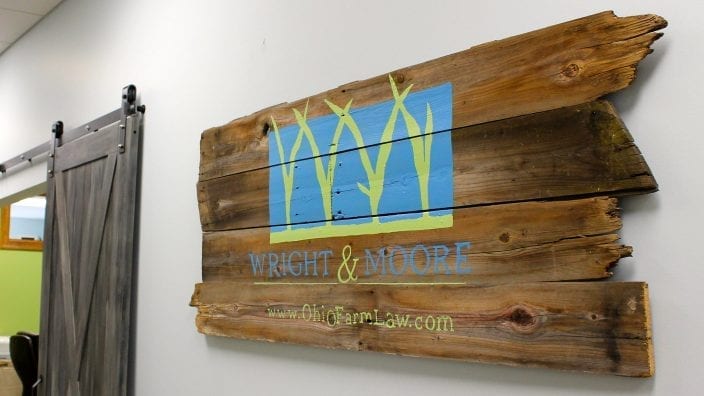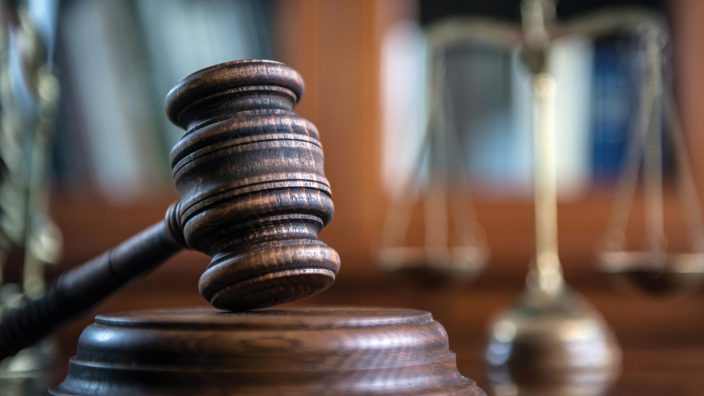Gifting now versus waiting for a step-up in basis
A lot of factors and personal goals can go into this decision, which we suggest discussing with your farm succession team.
Read MoreWhile a growing digital wallet can be a healthy addition to your investments, your estate plan should adapt to this new class of asset.
By Ryan Conklin, Wright & Moore Law Co., LPA
If you follow financial news, investment trends, or emerging markets, you have probably heard of Bitcoin, Ethereum, Doge Coin, and other cryptocurrencies. Cryptocurrency, or crypto for short, is a new system of currency that is based entirely on the internet and is not tied to a central bank or a particular government. In the last few years, crypto emerged as a darling of the investment world, with some currencies increasing in value by thousands of percentage points.
Crypto is maintained in a digital ledger that is highly secure, rigorous to acquire, and very difficult to access by unauthorized parties. The owner of an online crypto wallet is the only party who can access and manage those currencies. With such a valuable asset, and one that is regularly appreciating, estate planning for crypto owners present special challenges.
The first and most important step is the crpyto owner providing a trail of bread crumbs for a fiduciary to find. As with other assets, if someone doesn’t know an asset exists, it is difficult to make a plan for it.
Next, after an attorney is made aware of the cryptocurrency, he or she can adapt the estate plan accordingly. A crypto wallet requires a unique alphanumeric key for access, and these wallets typically do not rely on personally identifiable information like address or social security number. A crpyto owner should make the private key readily available to an estate planner.
Generally speaking, simple estate plan documents will struggle with a complex asset like cryptocurrency. If you elect to use a will-based plan, the valuation of your cryptocurrency or the private key may become public record. Similar to other assets like land, the probate process could tie up crypto in months of court proceedings. Best to avoid these hurdles with a proper estate plan.
A trust-based plan makes the most sense for dealing with a digital asset like cryptocurrency. Trusts provide maximum flexibility in drafting the plan, can offer complete privacy, and may allow for a seamless transition of the asset. Trusts also provide the best vehicle for managing estate tax issues that can arise if your crypto portfolio is substantial.
While a growing digital wallet can be a healthy addition to your investments, your estate plan should adapt to this new class of asset. If you, a friend, or a family member is mining cryptocurrency, make sure they implement an estate plan that can capture that value and pass it to his or her heirs. As always, seek legal counsel if additional guidance is needed.


A lot of factors and personal goals can go into this decision, which we suggest discussing with your farm succession team.
Read More

In 2022, Ohio passed House Bill 397 to give farmers more security by standardizing farm lease terminations. The law helps, but only a comprehensive written lease ensures your rights when circumstances shift.
Read More

Get a 2025 estate tax outlook and find out what the farm income outlook for this year on this Ohio Farm Bureau Podcast.
Read More

An attorney from Wright and Moore discusses what he thinks is missing from farmland lease termination law and what members voted to do about it.
Read More

To ensure that your farm and family receive competent guidance, proactive scheduling will be critical in the early part of 2025.
Read More

Family matters can get messy, especially when a new member joins that family. How are those details ironed out and why is the process so important? Learn more about that and Ohio electricity’s future.
Read More

Making legal plans before a new farm partnership of any kind starts is the topic of discussion with Wright and Moore for this Ohio Farm Bureau Podcast.
Read More

Why are “Legal Deserts” a problem and what is being done to give rural Ohioans more legal representation? Find out on this Ohio Farm Bureau Podcast from experts at Wright and Moore.
Read More

Two of the major trends playing out in Ohio are energy-related development, as well as reshoring of manufacturing, of which Intel is just the highest-profile example.
Read More

Get an update on the real estate picture in rural Ohio from Wright and Moore and find out why a new farm bill is a priority for Sunrise Cooperative and its members.
Read More